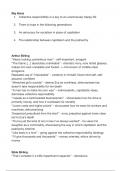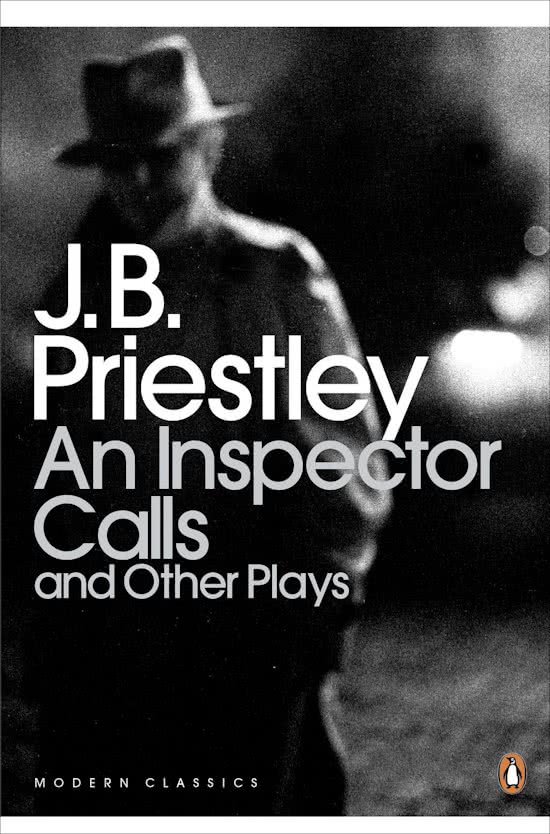Big Ideas
1. Collective responsibility is a key to an unanimously happy life
2. There is hope in the following generations
3. An advocacy for socialism in place of capitalism
4. The relationship between capitalism and the patriarchy
Arthur Birling
“Heavy looking, portentous man” - self-important, arrogant
“The titanic […] absolutely unsinkable” - dramatic irony, rose tinted glasses,
makes him look unreliable and foolish -> microcosm of middle-class
arrogance
Repeated use of “impossible” - certainty in himself, xed mind self, self-
assured, con dent
“Wretched girl’s suicide” - deems Eva as worthless, dehumanises her,
doesn’t take responsibility for her death
“A man has to make his own way” - individualistic, capitalistic ideas,
dismisses collective responsibility
“I speak as a hard-headed businessman” - showcases how his drive is
primarily money, and how it overbears his morality
“Lower costs and higher prices” - showcases how he sees his workers and
machines, dehumanising
‘[Inspector] prejudiced from the start” - irony, prejudice against lower class
led to Eva’s death
“You’re just the kind of son in law I’ve always wanted” - he views his
daughter as a commodity, showcasing the way in which capitalism and the
patriarchy interlink
“Like bees in a hive” - going against the collective responsibility ideology
“I’ll give thousands and thousands” - money oriented, ethics drivne by
money
Sible Birling
“That I consider it a tri e impertinent inspector” - dismissive
fi fl fi
, “I think you should go to bed and forget about this absurd business” - wants
Sheila to conform to her stereotype as a woman, infantilises her
“Enters briskly and self-con dently” - con dent in her status
“Girls of that class” - shows how she actively looks down on those in the
class below her, thus highly conforming to her upper class status
“He’s only a boy” - infantilises her children but doesn’t take on the role of the
mother well, not nurturing but cold -> wants to keep up the facade of her
family
She still seems to have less in uence, which showcases that even though
she is richer, she is still undermined (in uence and strength of the
patriarchy)
“I think I was justi ed” - thinks she was in the right, did nothing wrong
Sheila Birling
“A pretty girl in her early twenties, very pleased with life and rather excited” -
ts into the convections of a young woman, privilege
“Yes, go on, Mummy” - naivety, acts like a child
“(rather distressed) I can’t help thinking about this girl- destroying herself so
horribly- and I’ve been so happy tonight. Oh I wish you hadn’t told me.” -
she is again conforming into the stereotypes of young women
“But these girls aren’t cheap labour- they’re people.” - hope for younger
generations to change society, juxtaposes what her father says
“She was a very pretty girl…that didn’t make it any better.” - demonstrates
how she values vanity
“And if I could help her now, I would-” - signs of change
“I’ll never, never do it again to anybody…I feel now I can never go there
again” - self-pitying, but also realises her responsibility (antithesis of her
parents)
“You don’t seem to have learnt anything” - tone juxtaposes Act 1, Priestley is
expressing how he wants people to realize their privilege and go through a
transformation like Sheila
-> her giving back the ring shows a disintegration and rebuilding of her
values
“Fire blood and anguish” - echoing inspector, being a voice for the socialist
ideals and change
Eric Birling
fi
fi fi fl fl fi





